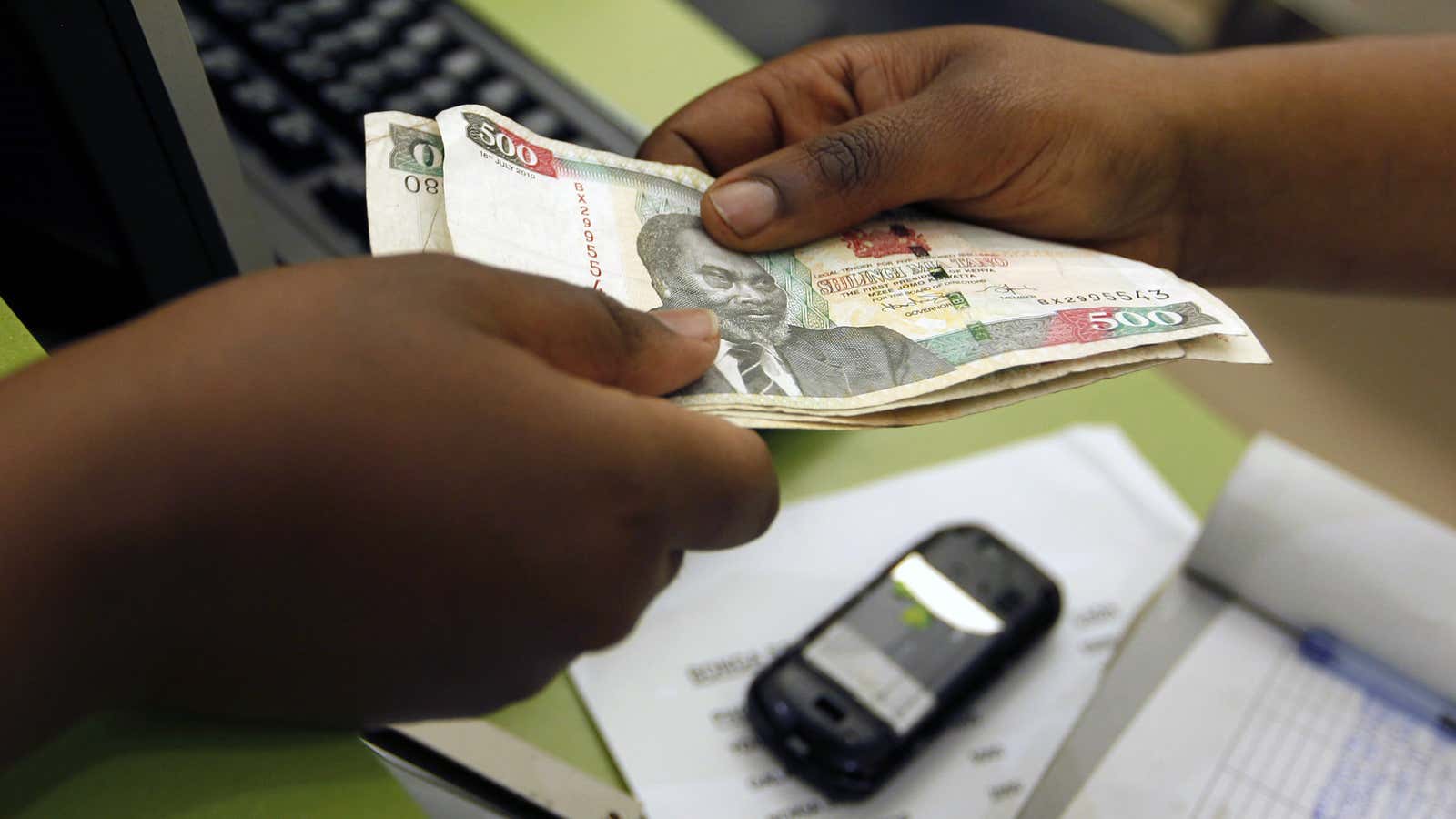For a minute there, it looked like Safaricom might have to break up its business.
In July, as Quartz reported, Kenyan cabinet secretary Fred Matiang’i announced that the government would introduce new regulations aimed at guarding against monopolies, which could have led to Safaricom being declared anti-competitive and potentially split into three separate units.
But Kenya’s biggest mobile phone company can rest a little easier now after the country’s attorney general Githu Muigai instructed Matiang’i in a letter to his cabinet colleague to withdraw the proposals and “subject them to discussions.”
For Safaricom, the intervention comes at an opportune time. And while this does not mean Safaricom is completely out of the woods yet, it at least gives the company time to make its case to the regulator. Mobile-money transactions hit 1.3 trillion Kenyan shillings ($12.9 billion) in the first half of 2015 and Safaricom controls close to 77% of this market in Kenya, through its popular M-Pesa platform.
At the center of the dispute is whether Safaricom has been abusing its dominant position in the market. The Communications Authority (CA), with support from the ICT ministry, and Safaricom’s rival Airtel Kenya, is arguing that the company is a monopoly since it controls more than 50% of the mobile market.
But the Competition Authority of Kenya (CAK) has sided with Safaricom, saying that market dominance alone does not a monopoly make. “The CA should aim at being proportionate in appropriating ex-ante remedies on to the dominant licensee, considering that the dominance position may have been acquired through innovation,” CAK’s chairman argued last month.
Airtel Kenya has been complaining that Safaricom is using its oversized position to squeeze out competitors, such as charging for cross-network money transfers and, up until recently, not allowing its agents to host rival mobile money services. “It is common sense that Safaricom needs to be split,” Airtel’s chief executive Adil El Youssefi told a Senate committee in July. “Let M-Pesa be a national platform that is independent, for the mobile user to freely choose their mobile network.”
But Safaricom has argued that it secured its dominant position by pursuing a sound business strategy and that it is simply unfair for the regulators to seek to punish them for that. “We see no justification for splitting our business into three,” the company’s CEO Bob Collymore has said. “The likes of Google, Microsoft, Panasonic, and Sony are vibrant because they stand on their own two feet.”
